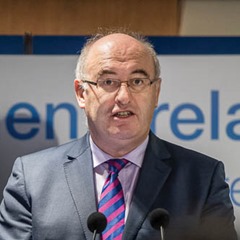Reform for Republic’s councils
 May 2014 will be a turning point for local government across the island. agendaNi sums up the changes under way in the Republic.
May 2014 will be a turning point for local government across the island. agendaNi sums up the changes under way in the Republic.
The Republic’s local government system is preparing for its most significant overhaul since partition, including the abolition of town councils and the merger of six larger local authorities. Elections take place on 23 May.
Its status quo is based on Victorian legislation. The Local Government (Ireland) Act 1898 was passed by a Conservative government. It reduced the power of landlords but the Government’s overriding intention was to satisfy nationalism without introducing home rule. Elections moved from first-past-the-post to proportional representation in 1919.
Rural districts in the South were abolished in the 1920s but urban districts have continued in place, overseen by town councils. Northern Ireland kept the entire system until the 1970s when the current councils were introduced.
The Local Government Act 2001 abolished dual mandates and there are currently five city councils, 29 county councils and 80 town councils. Environment Minister Phil Hogan has just taken the Local Government Reform Act through the Oireachtas. This will result in a new system of three city councils and 28 county councils; the number of councillors will drop from 1,627 to 949.
Three amalgamations will take place: Limerick County Council with Limerick City Council; Waterford County Council with Waterford City Council; and North Tipperary County Council with South Tipperary County Council.
Town councils will be merged into county councils but their areas will become municipal districts. Councillors in these districts will have some extra powers e.g. to regulate parking, rights of way and trading. The title of Mayor will continue to exist, including lord mayors for Dublin and Cork.
A national oversight and audit commission will hold local authorities to account for their performance and value for money, and carry out investigations if requested by the Minister.
Fianna Fáil has called for directly elected mayors in all cities, Cabinet-style leadership and the retention of town councils for settlements with over 7,500 residents. In the light of the Mahon Tribunal, the party also proposes ‘anti-corruption plans’ i.e. stricter audits, complete transparency on planning issues and mandatory declarations of interest by councillors.
Sinn Féin is seeking a significant transfer of power to local government, particularly in housing policy. It wants a minimum of 1,165 councillors although, back in 2005, it supported the ‘super-council’ model which would have almost halved the number of councillors in the North. The new councils will take effect immediately after the elections and an Irish Government spokesman said that the sector has had “plenty of time to do the preparations” over the last year.





